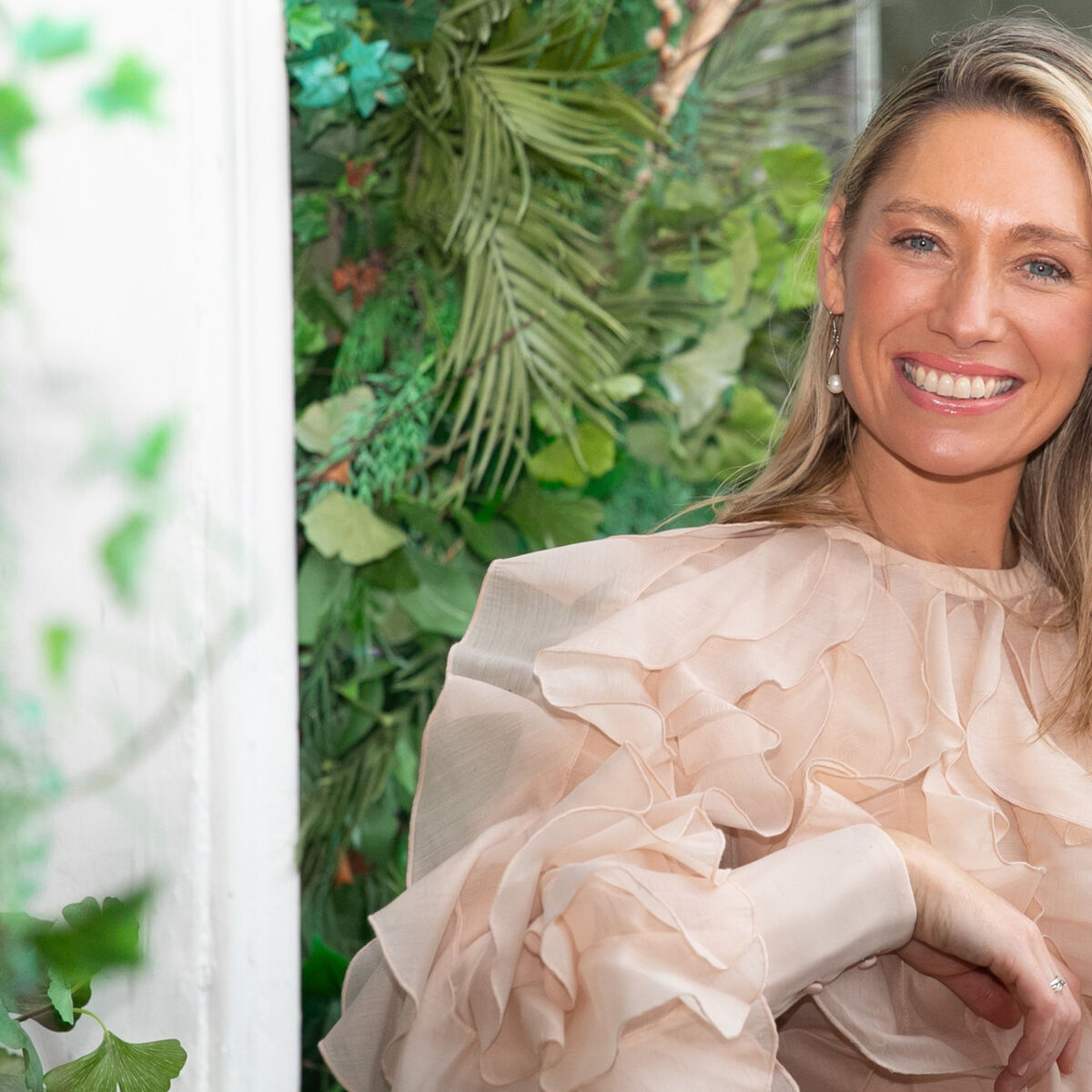Miriam Hussey: I ended up in hospital after travelling — it was quite frightening to see that
By Gemma Fullam,Irishexaminer.com
Copyright irishexaminer

Miriam Hussey grew up the youngest of five siblings in a busy B&B “right beside Moran’s on the Weir” in Kilcolgan, Co Galway, which over the years hosted such luminaries as Maureen O’Hara and Jack Charlton among its paying guests.
“It was a very Irish home,” Hussey says. “We’d dance for the guests in the morning and then my brothers would be out playing hurling and they’d have Jack Charlton trying to hit a ball against the wall.
“He couldn’t understand GAA at all. He thought we were all crazy.”
Growing up in the West “embedded a love of the sea and of nature”, and today Hussey lives near the Dublin coast with her husband and Soul Space co-founder, Gerry — himself a bestselling author and high-performance coach — and their two young children.
Hussey studied pharmacy at the Royal College of Surgeons in Dublin, but the draw towards a holistic view was always there, and she wrote her thesis on complementary and alternative medicine.
“I think I was the only person who chose that. My peers thought I was maybe a bit mad, a bit woo. But I always leaned towards looking at that bigger mind, body, soul approach to our health and to our healing.”
That approach is brought to vivid life in Light Up, a practical toolkit for holistic health that also documents Hussey’s own journey through challenging times, including struggles with disordered eating, self-doubt, a damaging tendency to people-please, and the challenges of new motherhood. It’s an unflinchingly raw read at times — why did she feel it important to share such vulnerabilities with her readers?
“In my book, I said, ‘I cannot be the dentist with rotten teeth’. I need to be open and honest and share my story and journey as openly and authentically as I can to hopefully allow other people to do the same and to know that they’re not alone.”
We are all aware of the ‘fight or flight’ responses to stress, but Hussey’s book reveals that rather than two, there are actually six — fight, flight, freeze, fawn, and flow.
A fawn response is essentially a people-pleasing one, and Hussey’s defaulting to this response ultimately “frayed and frazzled” her nervous system and led to a realisation she was not being her authentic self.
Figuring out the roots of her tendency to people-please has led her to a more “aligned and peaceful” path, and she’s chosen to share that journey precisely because she’s met so many women with a propensity to people-please. (She mentions that many of her female clients “can’t look in the mirror and say something loving about themselves”, and that she primarily wrote Light Up “for women to find their own light again, because I feel like so many people have dimmed their light [and] are not able to honour their beauty and their brilliance”.)
In terms of people-pleasing, I suggest that women, by and large, haven’t been brought up to say ‘no’. How do you get over that?
“The big thing is creating boundaries. I speak about that in the book.
Boundaries aren’t just physical. It’s more the emotional boundaries that we have to overcome.
Hussey doesn’t portray herself as healed and perfect — “because I’m absolutely not, and I don’t believe anybody is. I’m still on my journey and there’ll be days where I’ll be challenged and triggered, but I’ll use the tools in the book to help me navigate through that” — displaying the authentic openness that makes Light Up such a compelling, relatable read.
She compares healing to peeling back the layers of an onion, and suggests viewing life’s challenges as “an invitation to say ‘there’s a little bit more healing to be done here’” rather than the negative spin of “what’s wrong with me?”
Being overworked, overwhelmed or exhausted can be the catalyst for tipping us back into “old ways of thinking or being that maybe aren’t serving us any anymore”, but compassion towards oneself is key, she says, because those thoughts and habits are coping mechanisms “developed to survive during a stressful period in your life”.
Hussey struggled with disordered eating for a number of years in her 20s.
“The eating issue started when I was doing my finals in college. That was a stressful time for me because there was a lot of pressure. I put it on myself to get through the exams and do really well in them. In pharmacy, you’re surrounded by high achievers. So whether it’s conscious or unconscious, you’re in that environment of ‘achieve’.
“So when I got into that stressful state… my appetite declined.
“But then that led me into a tizzy of my worthiness. And [thinking] maybe I’ll be seen and approved for my external appearance.
“That’s something I nearly clung to as my identity, until I started to unravel that and say ‘what’s actually going on here? This isn’t normal, and it’s quite destructive’.
“In the book I talk about when I ended up in hospital after travelling and the impact that had on my body, and it was quite frightening to see that.
“But also it’s a way of fleeing or escaping the reality of what’s underneath that. For me, that was people-pleasing or that sense of worthiness that I wanted to be seen by the outside world as beautiful, or this or that, because I didn’t feel it myself.”
Hussey had spent her post-finals summer travelling with friends in Southeast Asia, during which time the already underweight 21-year-old continued to drop pounds and, on her return home, ended up in an intensive care unit with bilateral pneumonia.
“When I was travelling and doing all that, I had a moment where I went back to the Louise Hay stuff and I was like, ‘wow’. It brought me back to actually what’s going on here and what’s really important. And that’s when I went on my journey to meet my amazing therapist who helped me unpack and unravel that.”
Hussey still sees that therapist and views her past experiences through the prism of gratitude “because it has allowed me to become a detective of my own soul” and “helped me help other people in that same space”.
Although Hussey loved her years as a pharmacist, she found herself becoming increasingly frustrated with its limitations, and eventually moved to part-time to facilitate her education in an array of integrative health and wellness practices, and to work as a health coach and yoga teacher.
One day, while filling a customer’s pillbox with almost 20 medications, the penny dropped and she realised she’d be doing “a better job if I got out from behind the counter and started to speak about lifestyle as medicine or preventative health”.
Encouraged by her parents, who were “amazing”, and her husband Gerry — “I said ‘what if it fails?’, and he said, ‘Miriam, you can always go back. You’re never not going to be a pharmacist’” — she made the leap to a full-time career in integrative health and wellness, with the duo co-creating the “empowering movement” business, Soul Space.
She and Gerry are “beautifully aligned” in their philosophies of life, but “we are human as well” she says, acknowledging the inevitable stresses that accompany family life, as well as the occasional moments of reactivity.
“We have a motto in our house — fracture and repair,” she says.
“As soon as you catch yourself, go straight over and repair. Have a big hug and a little chat and repair.
You can’t avoid the fractures, because things are going to be thrown at you. Life is going to challenge you in certain ways.
Hussey has the tools to navigate those life challenges and her mission is to help others learn them too, so that they can live their best lives in every sense. And she’s only getting started.
“It’s something I love doing. I love speaking, I love writing. And that’s what my soul is longing for more of. So hopefully there’ll be a sequel or two.”
Light Up by Miriam Hussey, published by Gill, is out September 25



